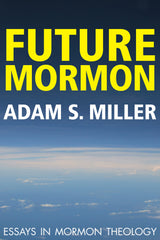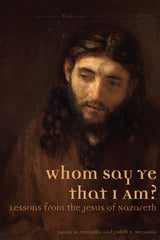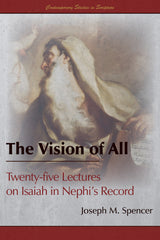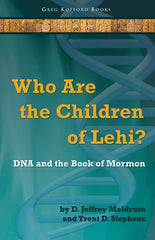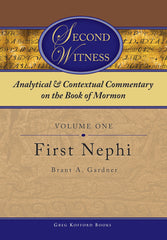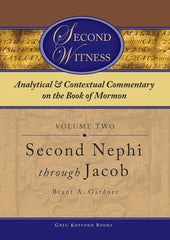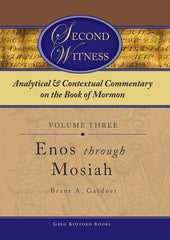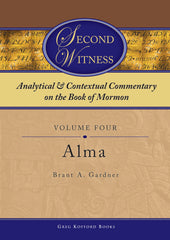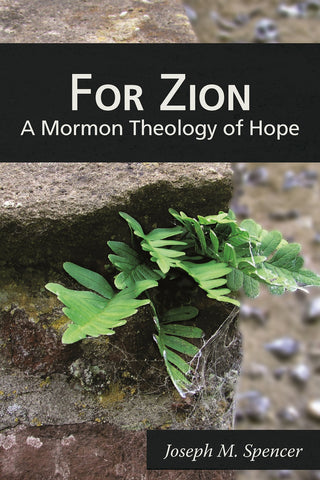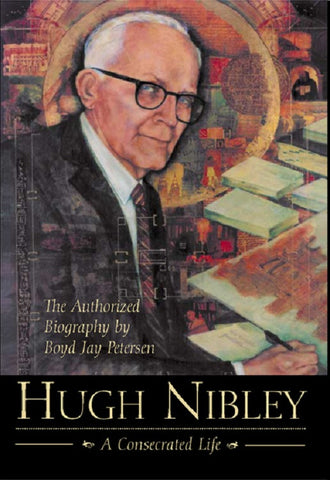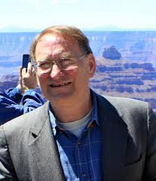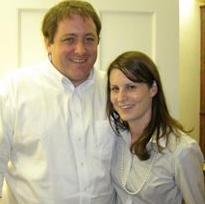News
Spring Flash Sale: Up to 88% off Select Ebooks March 24 2020
Stay at home with a great book and help take the pressure off delivery services by going paperless. From now through Easter, download select ebook titles for 30% to 88% off regular price.
Sale ends Monday, 4/12/2020
****NOTE: Due to an error, the discounts for the Kindle ebooks of Second Witness volumes 5 and 6 were not applied. They should be available at the discounted rate by Sunday*****
Insightful messages on justice, mercy, hope, community, and inspiring outlooks on the future during these difficult times. Discounted right now to just $1.99 (up to 88% off regular retail price).
|
$9.95 |
$16.99 |
$16.99 |
The message of Jesus is one of hope and healing. Spend time contemplating the life and mission of the Savior with thought-provoking and inspiring scholarship. Discounted right now to 50% off regular retail price.
|
$23.99 |
$9.99 |

$22.99 |
The Book of Mormon proclaims another witness of the mission of Jesus Christ. Deepen your knowledge and understanding of this sacred book with studies that explore its text, history, and origins. Discounted right now to 30% off regular retail price.
|
$25.99 |
$17.99 |
$20.99 |
|
$22.99 |
$17.99 |
$27.99 |
|
$27.99 |
$22.99 |
$9.99 |
|
$29.99 |
$29.99 |
$29.99 |
|
$29.99 |
$29.99 |
|
Free ebook offer: The End of the World, Plan B: A Guide for the Future November 08 2018
FREE EBOOK FOR NEWSLETTER SUBSCRIBERS
Book description:
Environmental decline, political gridlock, war and rumors of war, decadence, and immorality. The End of the World, Plan B traces the idea of the end, or destruction, of the world through a number of spiritual traditions. It shows that our present understanding of the “end game” has been distorted by a modern emphasis and demand on justice as the ultimate good. As an alternative to this self-destructive approach, Charles Shirō Inouye shows that in these traditions, justice is not the isolated end in itself that we ought strive for; rather it is taught in tandem with its balancing companion: compassion. Plan B is a hopeful alternative to our fears about how things are going.
“Inouye reminds us that justice is not enough and that obedience is not the currency of salvation. He urges us to recognize the limits of the law, to see that, severed from a willingness to compassionately suffer with the world’s imperfection and evanescence, our righteous hunger for balancing life's books will destroy us all.” — Adam S. Miller
DID YOU KNOW? Amazon pays authors and publishers roughly half the royalty percentage on ebooks compared to other services such as Apple, Barnes & Noble, and Kobo. Please consider increasing your support for independent authors and independent publishing by switching from Kindle to Apple Books (iBooks), Nook, or Kobo. Thank you!
STEPS TO DOWNLOAD
**Ebook file must be downloaded onto a laptop or desktop computer. After downloading, you can transfer the file to your ebook reader, tablet, or smartphone app.**
1. Enter your email address in the form below to sign up for our newsletter and receive a welcome email with instructions (check your junk mail if you do not see it). If you are already a newsletter subscriber, you should have received an email with this free ebook offer and instructions to download.
2. Click the here to open the ebook page on our website. Select which ebook format you wish to download (Kindle, Apple, Nook/Kobo). The price will show as $13.95 but will change to $0.00 as you complete these steps.
3. Click Add to Cart.
4. Click Checkout.
5. On the Customer Information page, fill out your name and address information. Enter the discount code that you received. The discount code will reduce the price of the book to $0.00.
6. Click Continue to Payment Method. You will not be required to enter payment info. DO NOT ENTER ANY CREDIT CARD INFORMATION.
7. Click Complete Order. You will be emailed a link to download the ebook along with instructions for transferring the ebook file to an e-reader device or tablet/smartphone app (check your junk mail if you do not see it).
Note: Once you have downloaded your ebook, it will be on your computer's hard drive, most likely in the "Downloads" folder. Kindle format will end with ".mobi." All other formats will end with ".epub."
Who is Lot Smith? Forgotten Folk Hero of the American West November 06 2018

WHO IS LOT SMITH?
LOT SMITH is a legendary folk hero of the American West whose adventurous life has been all but lost to the annals of time. Lot arrived in the West with the Mormon Batallion during the Mexican-American War. He remained in California during much the Gold Rush, and was later a participant in many significant Utah events, including the Utah-Mormon War, the Walker War, the rescue of the Willie & Martin Handcart Companies, and even joined the Union Army during the US Civil War. Significantly, Lot Smith was one of the early settlers of the Arizona territory and led the United Order efforts in the Little Colorado River settlements. What follows is a brief sketch of Lot's service in the Mormon Batallion and the experiences that shaped him.
Lot was reared by a hard-working Yankee father and a devoutly religious mother. His mother passed when he was fourteen. At the impressionable age of sixteen, Lot joined the Mormon Battalion in the Mexican-American War as one of its youngest members. His father passed before he returned to his family. Consequently, his experiences in the Mormon Battalion shaped his life significantly. The struggles of this heroic infantry march of two-thousand miles across the country embedded within him several valuable characteristics.

Lot Smith came to value the comfort of clothing and shoes in the absence thereof. As the battalion march continued, his clothing and shoes wore out. He had only a ragged shirt and an Indian blanket wrapped around his torso for pants. At the death of one of the soldiers, he gratefully inherited the man’s pants. His feet were shod with rawhide cut from the hocks of an ox. Ever after, he never took shoes for granted. It appears that he may have developed an obsession for them. Soon after his arrival in Utah Territory, he was known to have bought himself a pair of shoes that was outlandishly too large. He said that he wanted to get his money’s worth! Years later, he bought thirty pairs of shoes at a gentile shoe shop. When he saw the astonishment of the shopkeeper, he said, “If these give good service, I’ll be back and buy shoes for the rest of my family!” He frequently carried an extra pair of shoes. In at least two recorded instances, he gave an extra pair of shoes to grateful men who were in desperate need. He knew how feet with no shoes felt—sore, bruised and cut.

Smith developed endurance during the Mormon Battalion march. He carried a shoulder load of paraphernalia, walked as many as twenty-five miles or more each day—sometimes dragging mules through the heavy sand. There was no stopping—and absolutely no pampering. When the going got rough, he had to keep going. He suffered extreme heat and freezing nights on the deserts. Through all of these challenges, he learned to laugh at the hardships and to maintain a happy optimistic view of life. He emerged from the Mormon Battalion as a young man who knew he could do hard things.
It is not known how skilled Smith became with a gun during his battalion march, but during his later years in Arizona, he was known to be an expert marksman who could shoot accurately even from the hip. Every morning he took a practice shot. Navajos and Hopis would come from miles around to challenge him. He gained a reputation of the most feared gunman in Arizona.
Smith faced many life-threatening ordeals throughout the rest of his life. Many different kinds of hardships would test his endurance. He faced them with courage, a trust in God, and an upbeat attitude. His example inspired those who followed him. As a significant and beloved military leader, he knew how to succor those under his command. One who served with him in the military said, “We loved him because he loved us first.”
Lot Smith learned many valuable life lessons on the Mormon Battalion march that served him well. Yes, he rid his table of hot pepper—and he should have done away with something else hot—his temper!
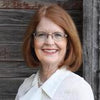 Talana S. Hooper is a native of Arizona’s Gila Valley. She attended both Eastern Arizona College and Arizona State University. She compiled and edited A Century in Central, 1883–1983 and has published numerous family histories. She and her husband Steve have six children and twenty-six grandchildren.
Talana S. Hooper is a native of Arizona’s Gila Valley. She attended both Eastern Arizona College and Arizona State University. She compiled and edited A Century in Central, 1883–1983 and has published numerous family histories. She and her husband Steve have six children and twenty-six grandchildren.

Lot Smith recounts the Mormon frontiersman’s adventures in the Mormon Battalion, the hazardous rescue of the Willie and Martin handcart companies, the Utah War, and the Mormon colonization of the Arizona Territory. True stories of tense relations with the Navajo and Hopi tribes, Mormon flight into Mexico during the US government's anti-polygamy crusades, narrow escapes from bandits and law enforcers, and even Western-style shoot-outs place Lot Smith: Mormon Pioneer and American Frontiersman into both Western Americana literature and Mormon biographical history.
On the tenth day of Kofford: 30% off war and peace titles! December 10 2016

War and peace titles are 30% off December 10th. These special prices are only available for one day, so don't wait!
Orders over $50 qualify for free shipping. Also, local Utah customers can opt to pick up their order directly from our office in Sandy (select this option under the shipping menu).
For more information about the Twelve Days of Kofford holiday sales, click here.
 |
War & Peace in Our Time: Mormon Perspectives Retail: $29.95 |
 |
Even unto Bloodshed: An LDS Perspective on War Retail: $29.95 |
 |
The End of the World, Plan B: A Guide for the Future Retail: $13.95 |
 |
Saints of Valor: Mormon Medal of Honor Recipients, Updated 2nd Edition Retail: $31.95 |
Kofford Authors at MHA June 01 2015
Greg Kofford Books authors have long been well-represented as speakers and panel chairs at annual conferences of the Mormon History Association, and the 2015 Conference at the Utah Valley Convention Center in Provo, Utah, June 4-7, is no exception! Check out the titles of their presentations and panels below:
Russell Stevenson, author of For the Cause of Righteousness: A Global History of Blacks and Mormonism, 1830-2013 will present, "We Aren't Africa: Mormonism in Nigeria, 1960-1964."
Joseph Spencer, author of For Zion: A Mormon Theology of Hope will present, "Canon and History: On the Revelation to Emma Smith."
Boyd Petersen, author of Hugh Nibley: A Consecrated Life and Dead Wood and Rushing Water: Essays on Mormon Faith, Culture, and Family will chair theTheology and History panel.
Claudia Bushman, co-editor (with Caroline Kline) ofMormon Women Have Their Say: Essays from the Claremont Oral History Collection will present "Early Decisions," as part of the Exponent II: Present at the Creation panel.
Lavina Fielding Anderson and Newell Bringhurst, editors of Excavating Mormon Pasts: The New Historiography of the Last Half Century will chair a panel and present a paper, respectively. Lavina will chair the Mormon History Journals Editors panel, and Newell will present "President David O. McKay's 1954 Encounter with the LDS Church's Black Priesthood Ban: An Important but Forgotten Episode."
Thomas Alexander, author of Mormonism in Transition: A History of the Latter-day Saints, 1890-1930, 3rd ed. will speak as part of the Culture of the Early Mormon History Association roundtable.
Todd Compton, author (with Leland H. Gentry) ofFire and Sword: A History of the Latter-Days Saints in Northern Missouri, 1836-39 will present "Ganado Mucho, Navajo Headman, and the Mormons."
Don Bradley, author of the forthcoming The Lost 116 Pages: Rediscovering the Book of Lehi will present, "From Cumorah's 'Ark' to Joseph's Hat: Sacred and Mundane Objects in the Emergence of the Book of Mormon."
Christine and Christopher Blythe, editors of the forthcoming Mormonisms: A Documentary History, 1844-1860 will chair panels and present papers. Christine will present, " 'Presiding at Birth:' The Creation of Folk Theologies among Latter-day Saint Women," and she will chair the Mormonism and Material Culture panel. Christopher will present, "Martyrdom Canes and Vernacular Mormonism" in that same panel.
Stuart Parker, author of the forthcoming History through Seer Stones: A Hundred Years of Mormon Pasts will present, "Margarita Bautista's 'Eternal Mexico:' A Revolutionary Mormon proto-Chicanismo."
Recent Reviews of Kofford Books Titles April 30 2015
Kofford titles continue to receive major accolades in the Mormon academic community. A few highlights from the past couple months:

For Zion: A Mormon Theology of Hope, by Joseph M. Spencer
- “It deserves to be read widely, and the message of consecration deserves discussion in Mormon sacrament meetings, Sunday schools, and General Conferences” —Association for Mormon Letters
- “Those interested in and familiar with Mormon theology will find this a refreshing read...Spencer’s book adds freshness and credibility to the literature, and his contribution to this topic is noteworthy.” —BYU Studies
- "What Spencer’s book drives home (and is all the reason for reading this remarkable book) is the invaluable insight that our hope in the future transformation of the world is made most evident in our loving answerability for its present circumstances." --BYU Professor of Humanities George Handley

- "I think this is now the primary scholarly treatment of the LDS race and priesthood history." — Times and Seasons
- "Stevenson should be commended writing the best resource for Latter-day Saints to learn more about the experience of Mormon blacks in settings both American and international...For the Cause of Righteousness is the best one-volume history of blacks and Mormonism available anywhere." — Juvenile Instructor: A Mormon History Blog
- “For the Cause of Righteousness” is an indispensable and long overdue volume — not only for its content, but also in the way it presents Mormon history. Stevenson’s book crucially shifts away from both the typical top-down leadership narrative, and the “outsider’s” perspective of Mormon racism. Exploring the priesthood ban in the framework of a global community better explains the interaction between blacks and Mormons. Significantly, this work illuminates the average Latter-day Saints’ role in shaping the faith—not as submissive sheep, but as movers and shakers." -- Association for Mormon Letters

- "Toward a Better Understanding" is warmly recommended for anyone who wants to learn more about Joseph’s plural marriages but particularly to those just venturing into its sometimes choppy waters. Were I not vulnerable to the sin of envy, I’d wish I had written it." -- Gregory L. Smith, Interpreter: A Journal of Mormon Scripture
- "I enjoyed this book and found it very helpful...The book allowed me to understand the relationships between events more clearly than I have before. I found the book to be faith-affirming and a further testimony of Joseph Smith’s life as a prophet of God. I would recommend it for those struggling with the topic as well as those who want to know more so they can be prepared for questions from others." --Suzanne Long Foster, Interpreter: A Journal of Mormon Scripture
- "Joseph Smith’s Polygamy: Toward a Better Understanding is an excellent and essential volume that will not only answer questions and offer solace to “truth seekers [who] may encounter details that are uncomfortable when studying early polygamy” but will also be a useful and interesting volume for those who have spent years studying the subject. I wholeheartedly recommend this book to all." --Craig L. Foster, Interpreter: A Journal of Mormon Scripture

Re-Reading Job: Understanding the Ancient World's Greatest Poem, by Michael Austin
Michael Austin received the 2014 Award for Best Religious Nonfiction from the Association for Mormon Letters, for his book, Re-reading Job: Understanding the Ancient World's Greatest Poem. -- Association for Mormon Letters



